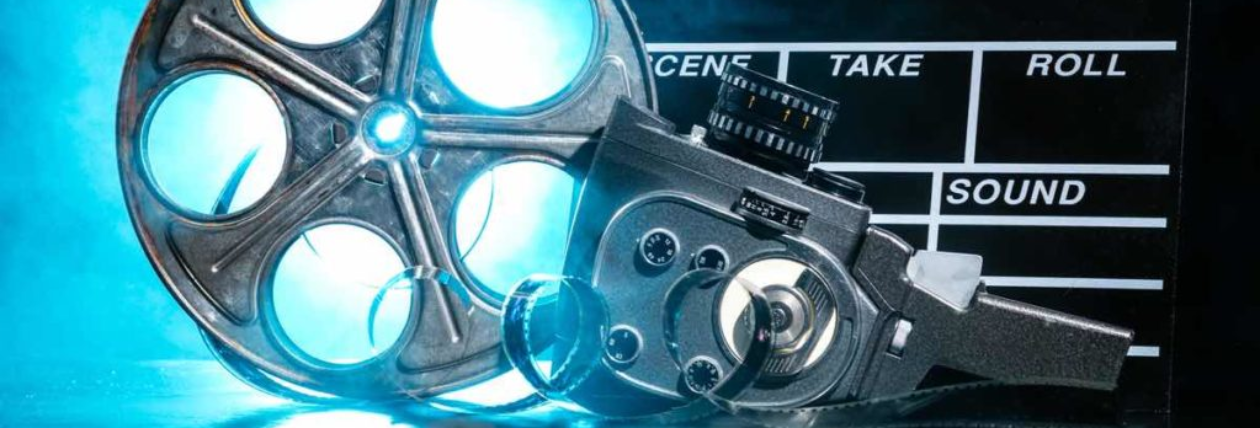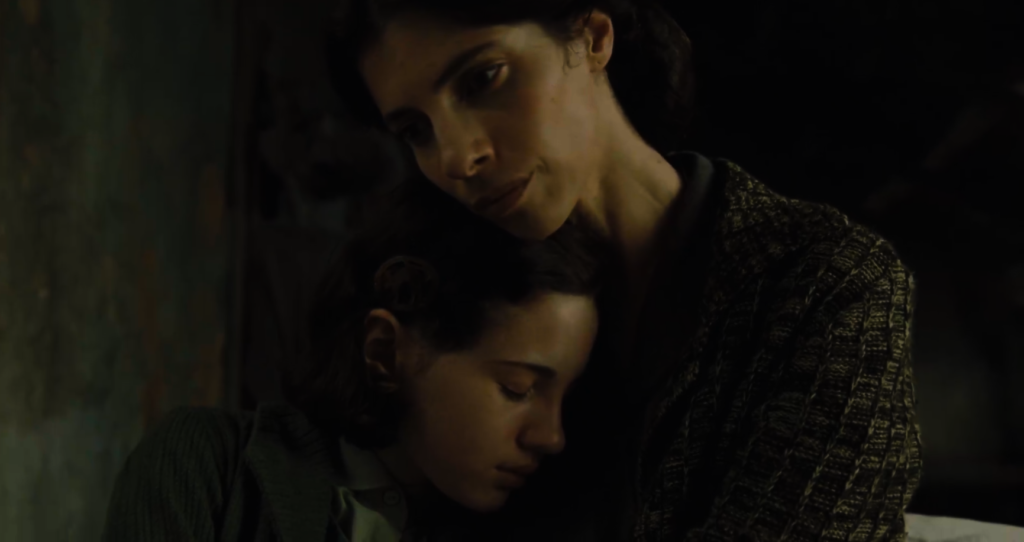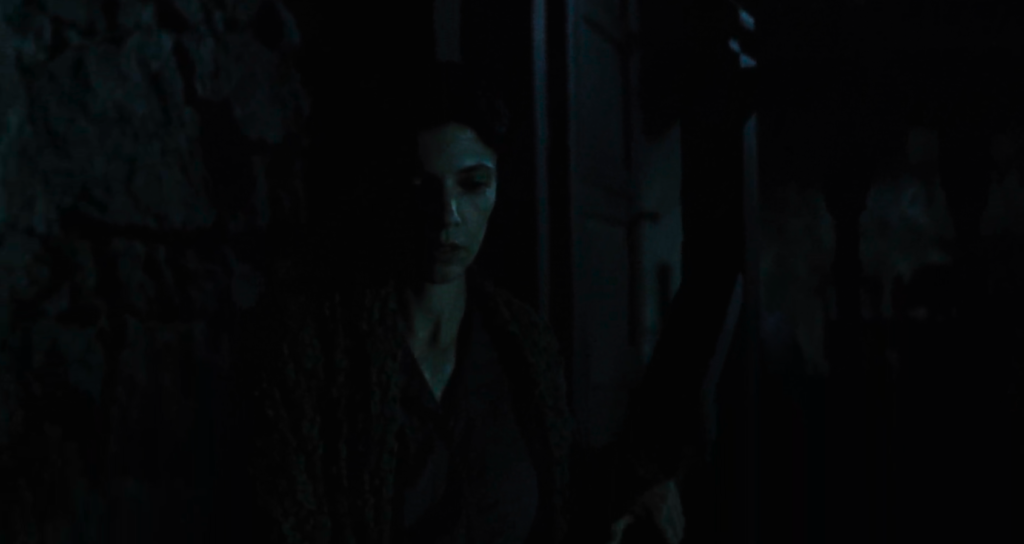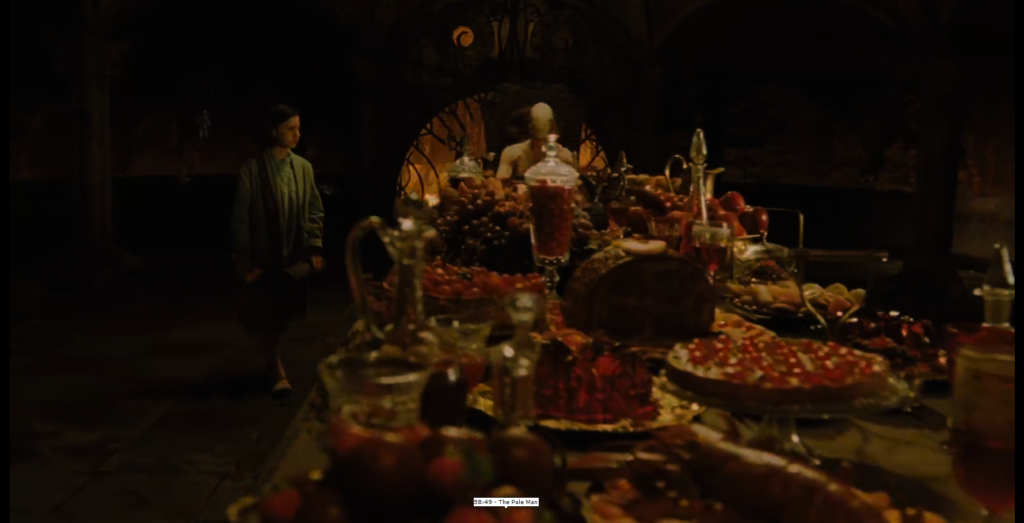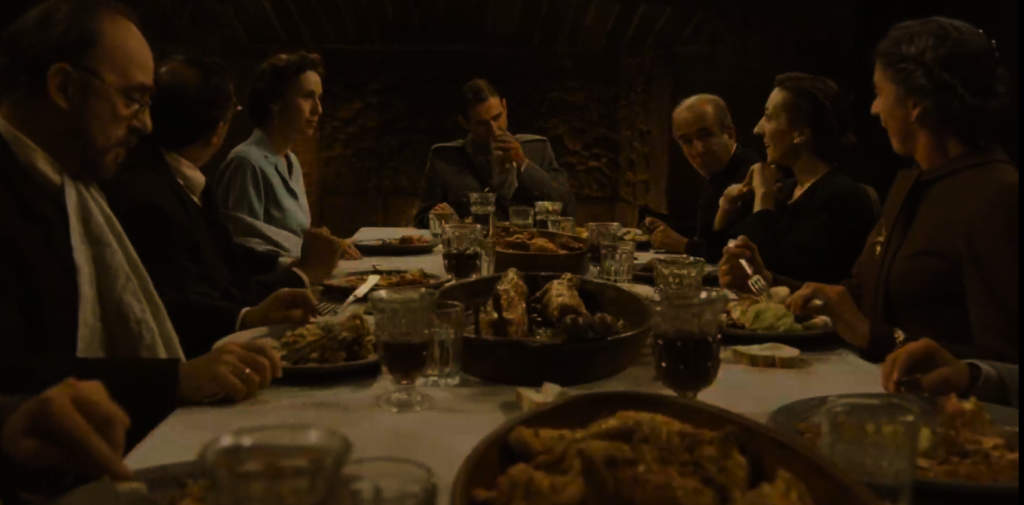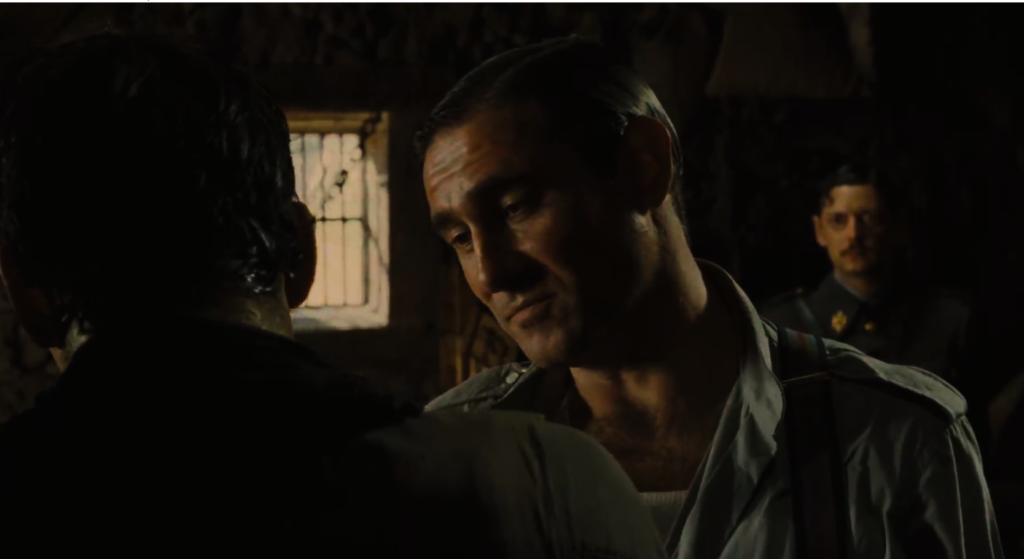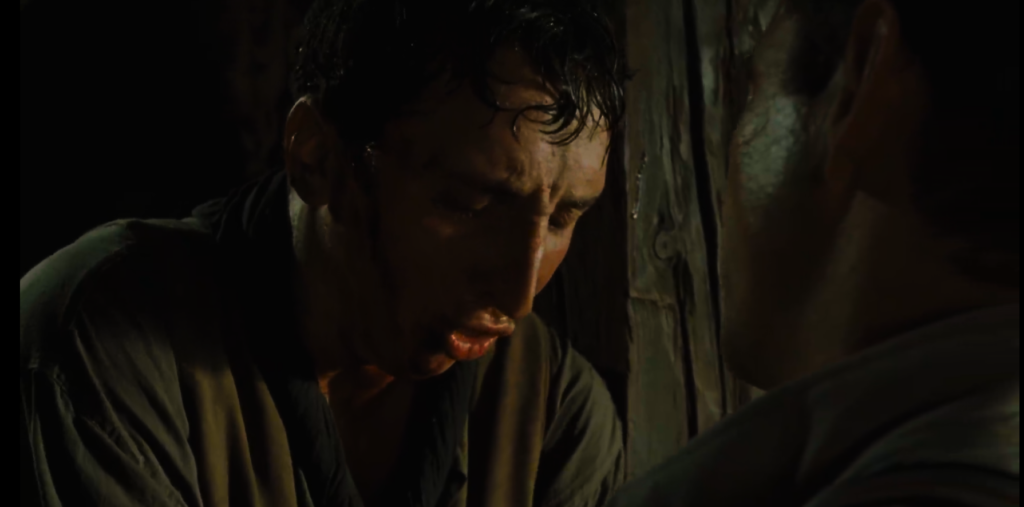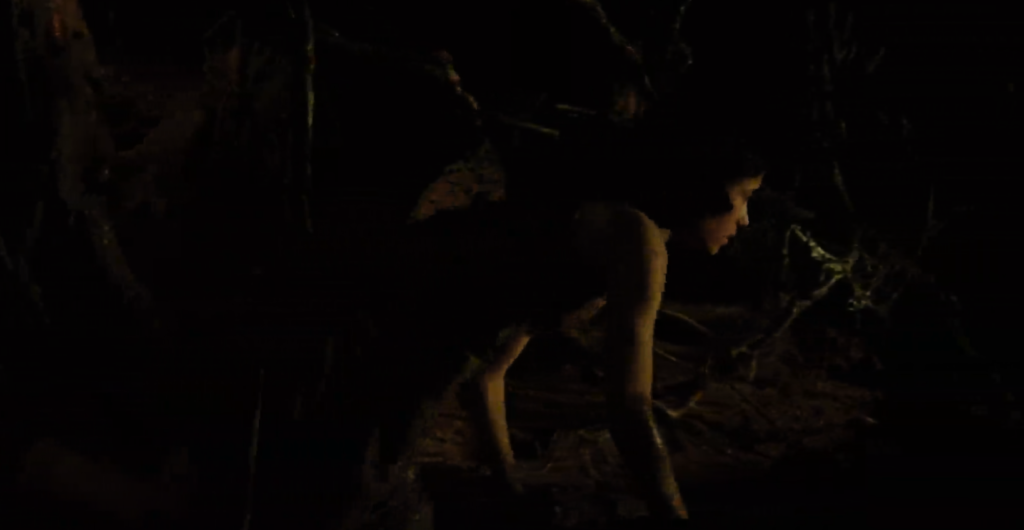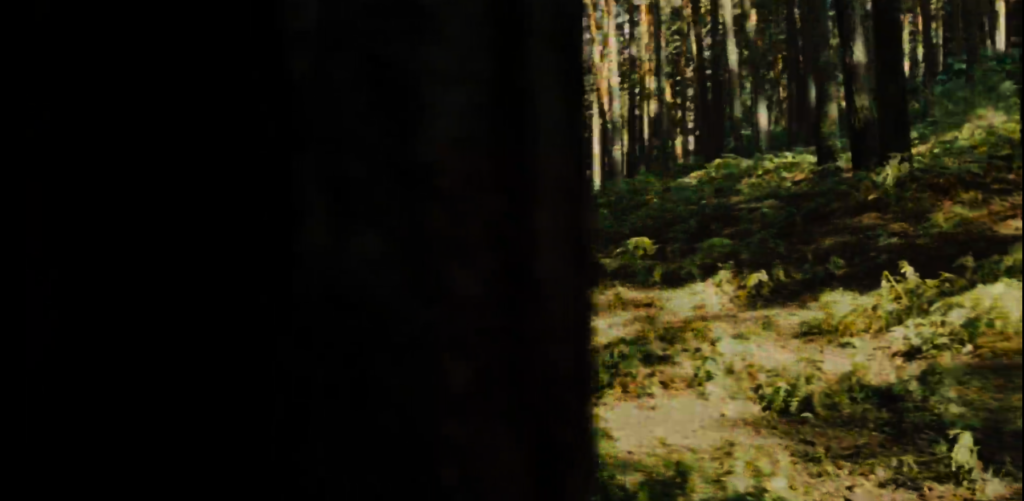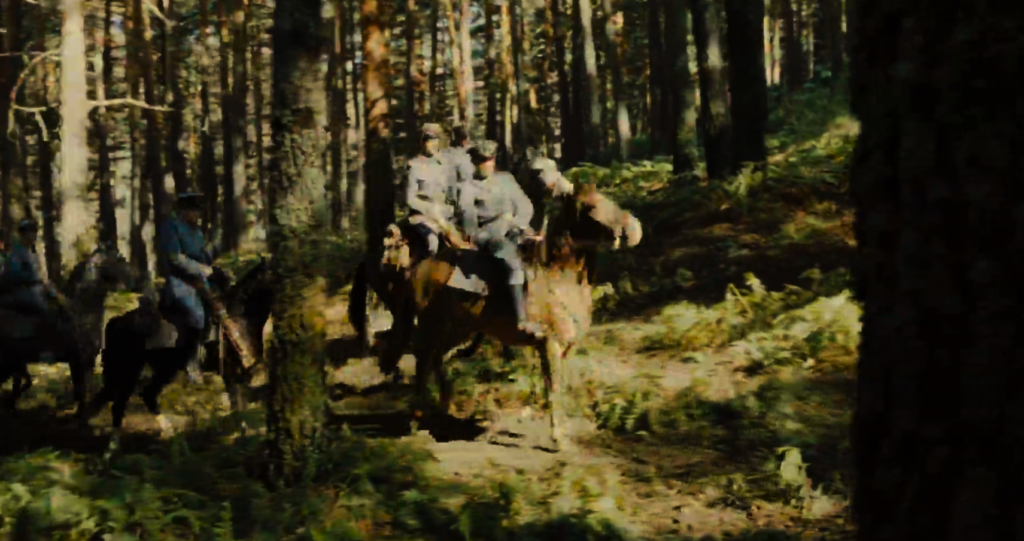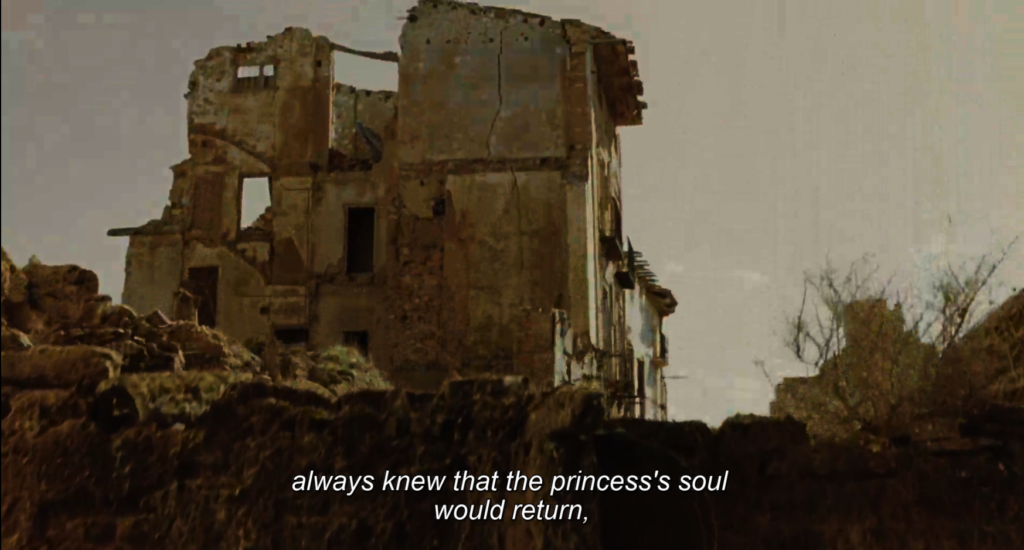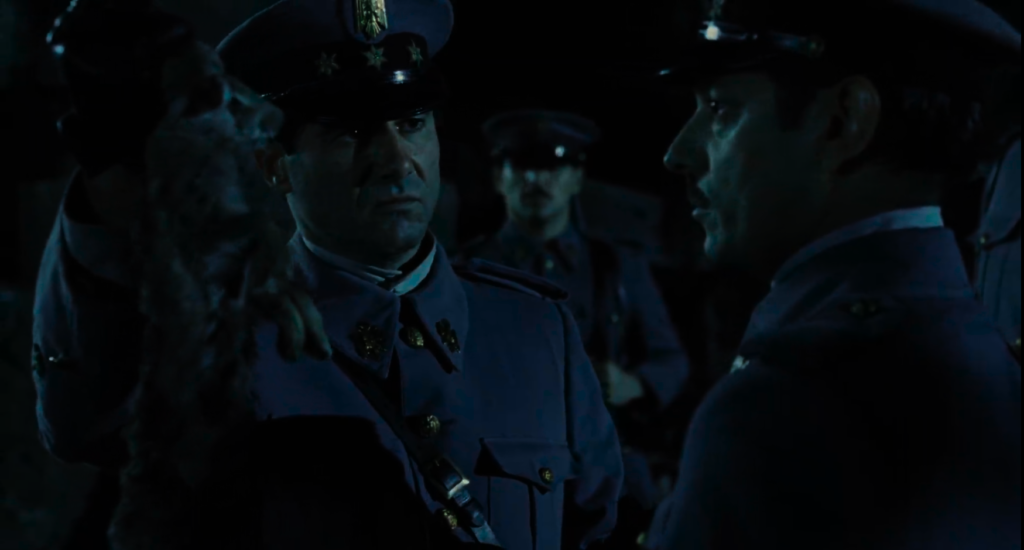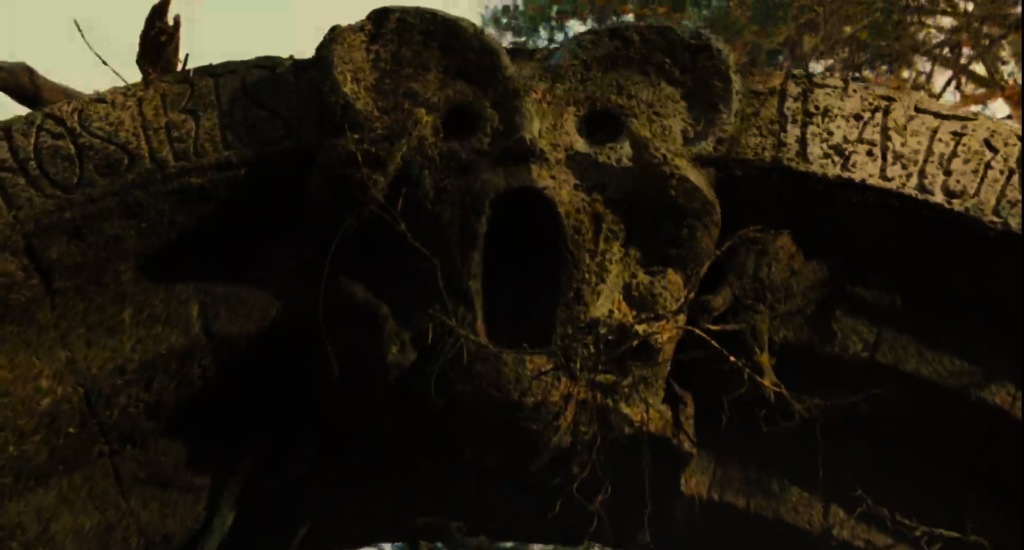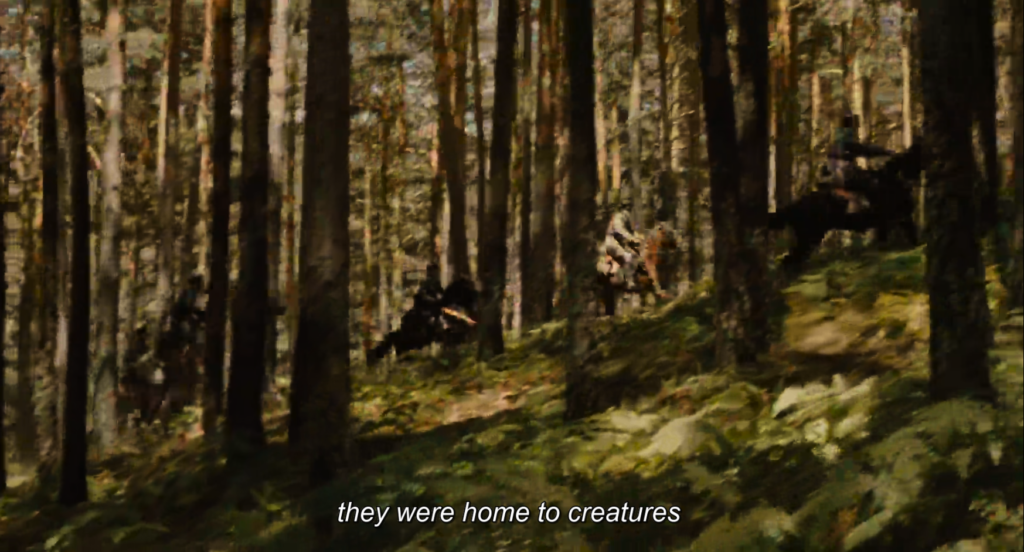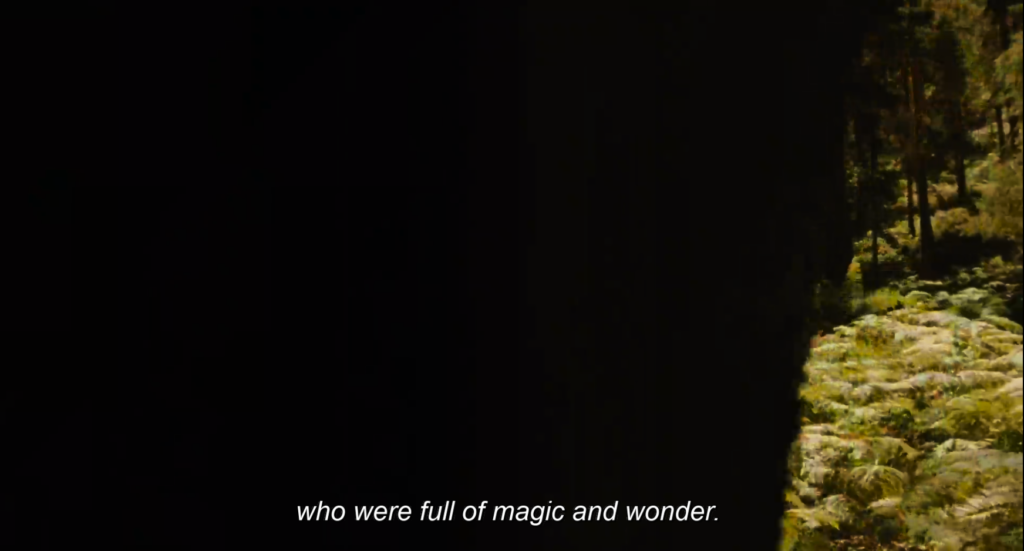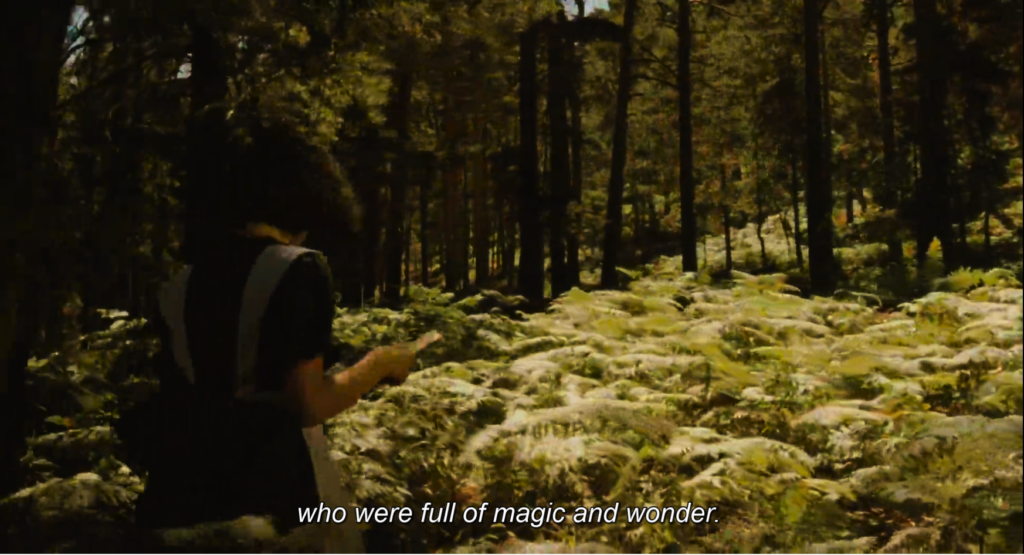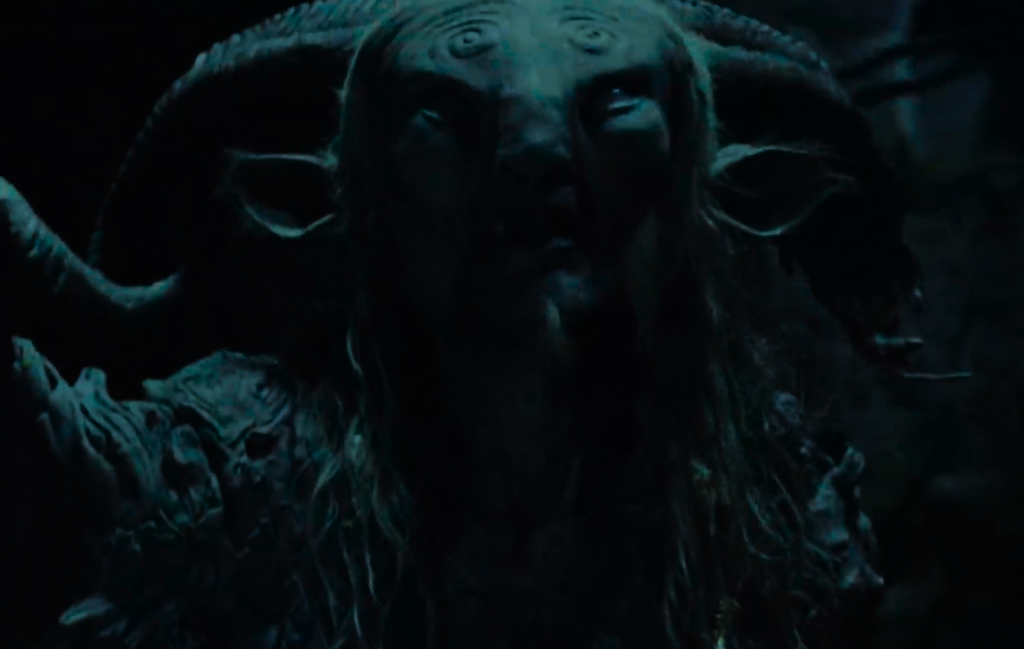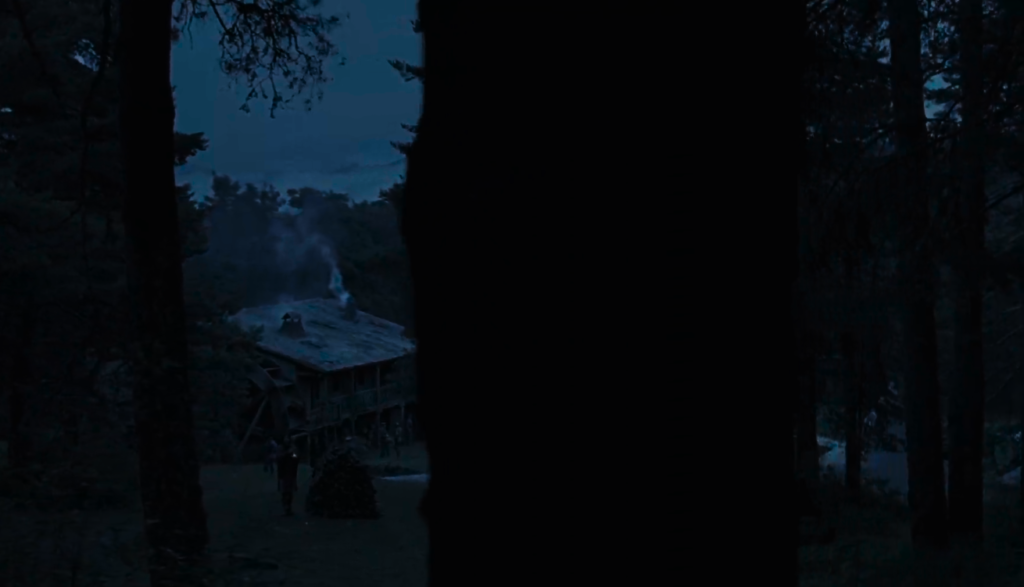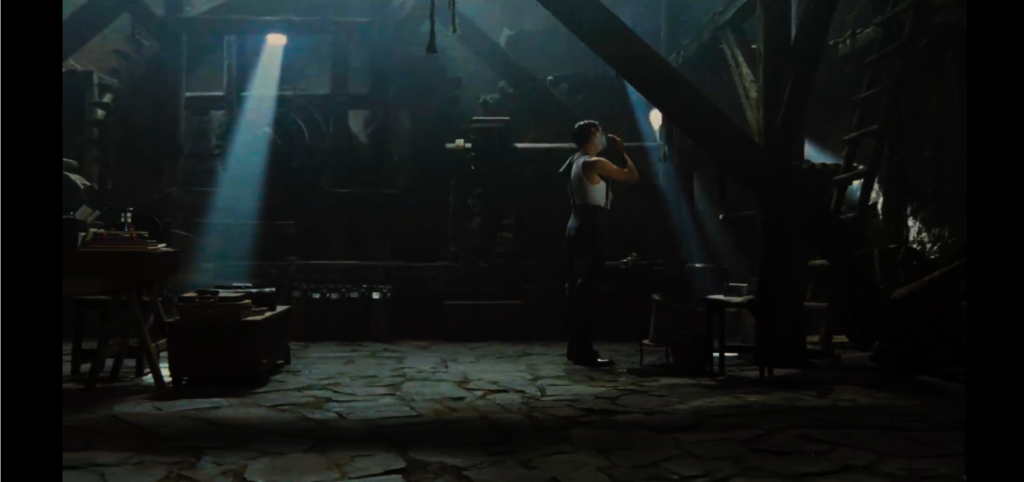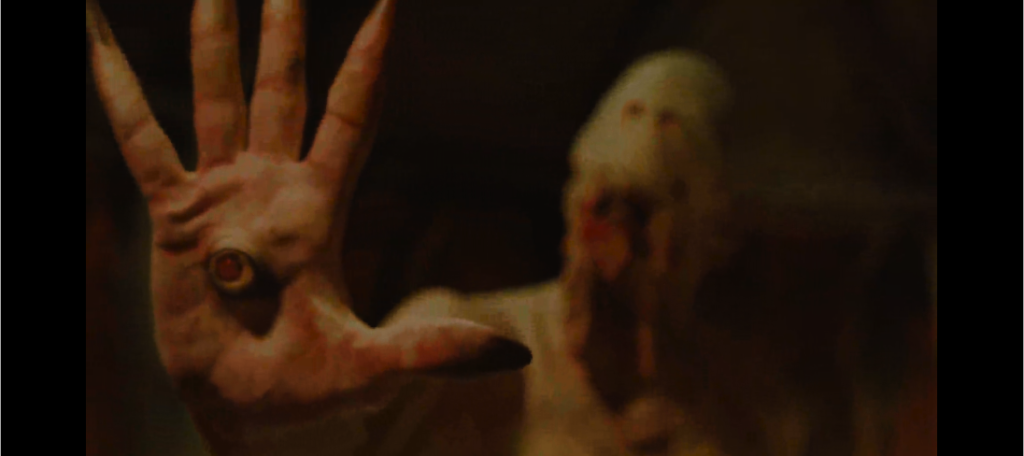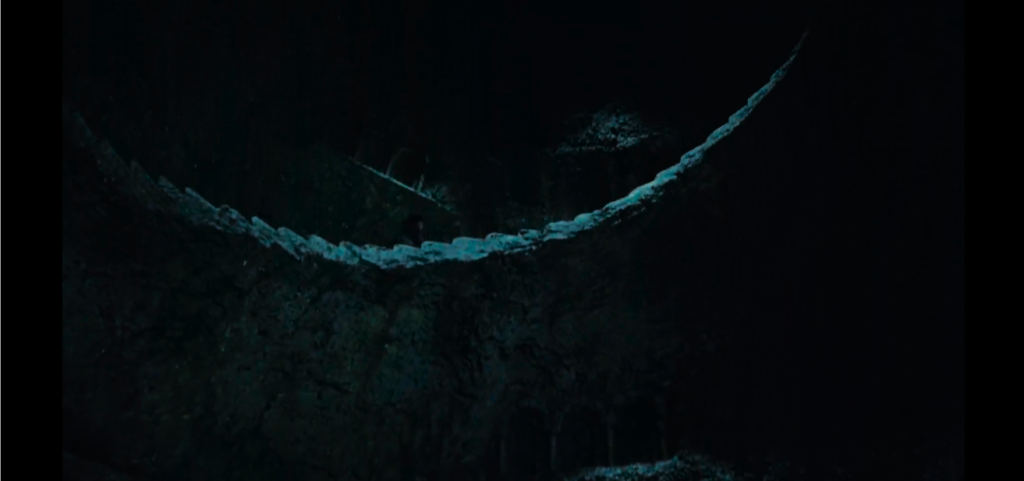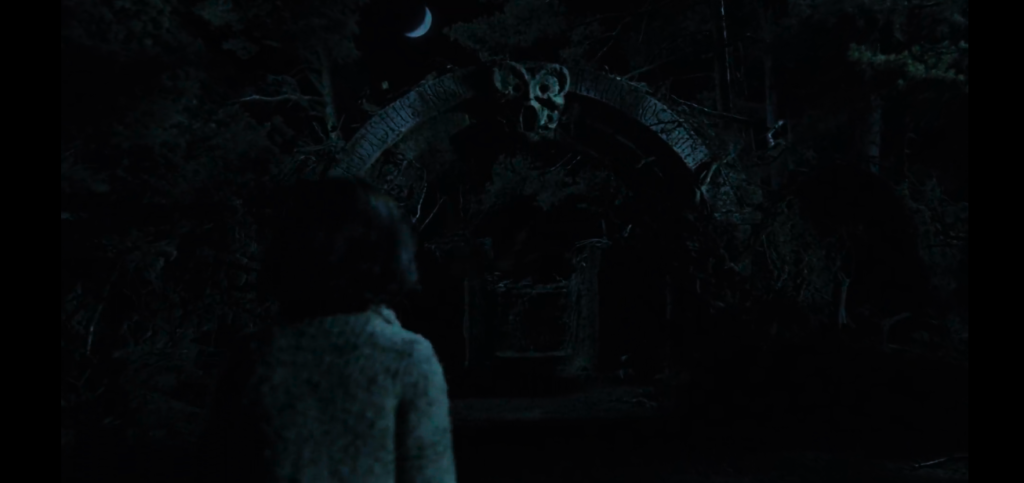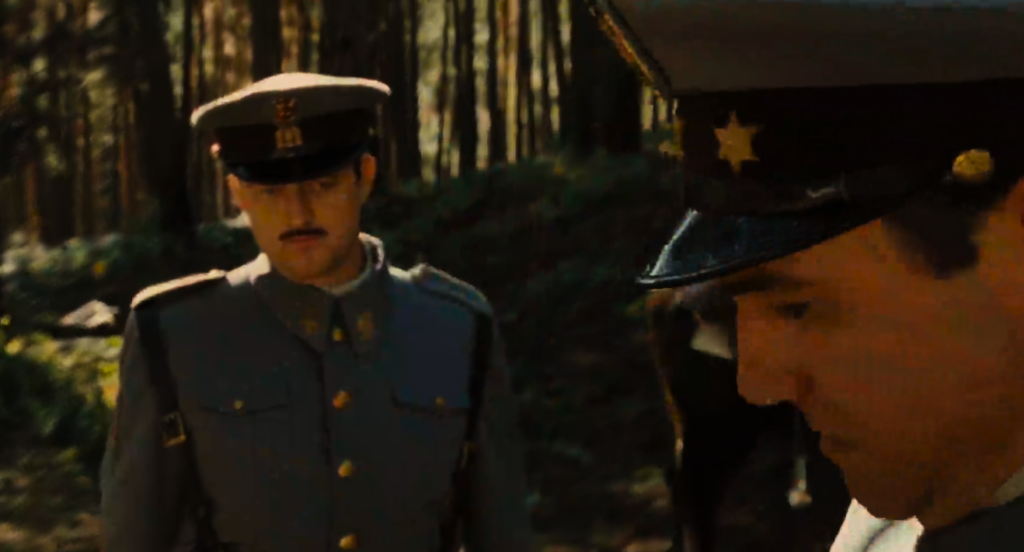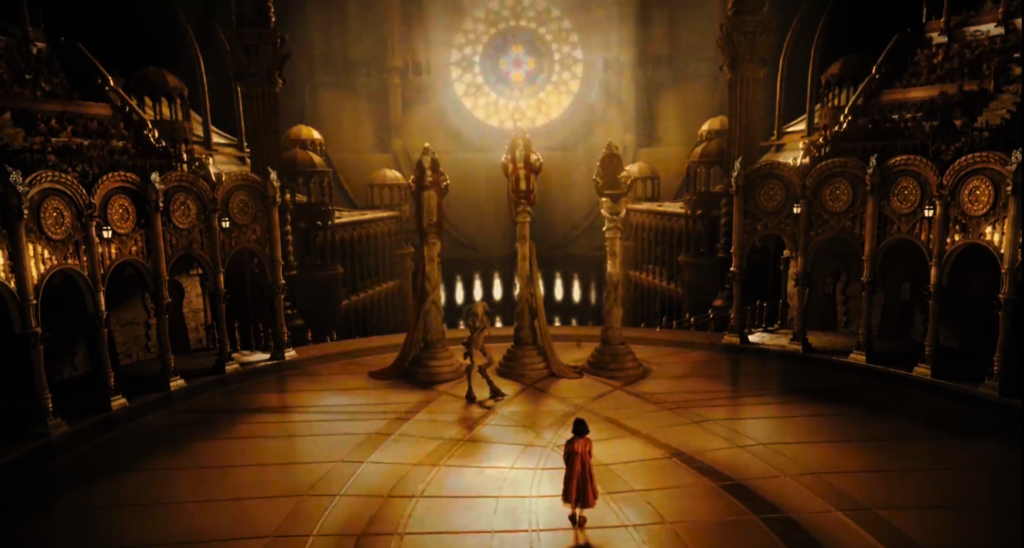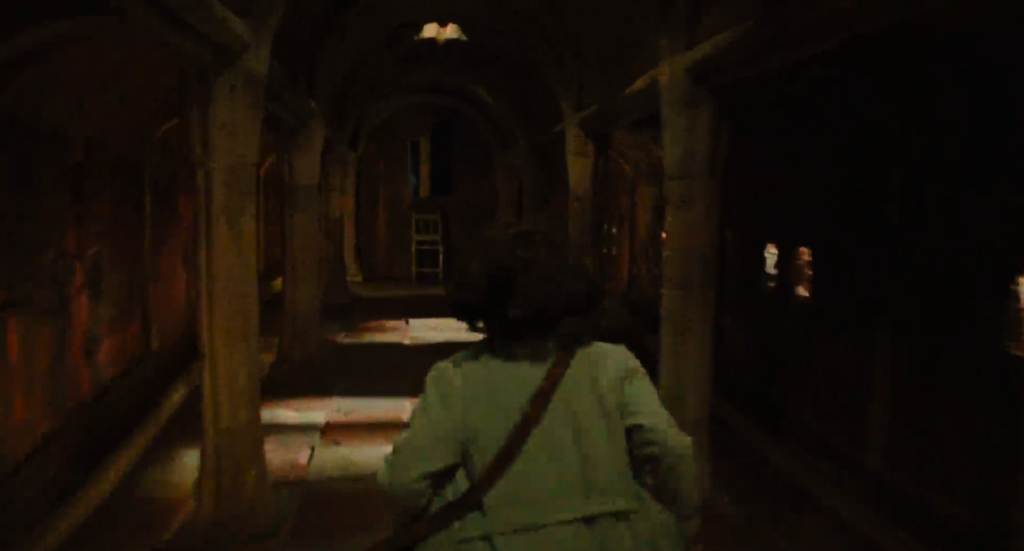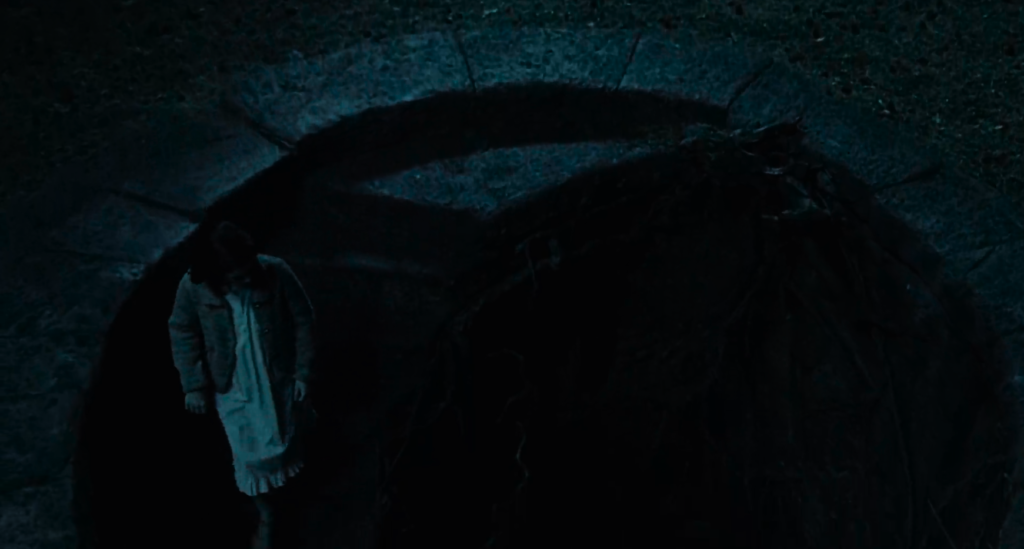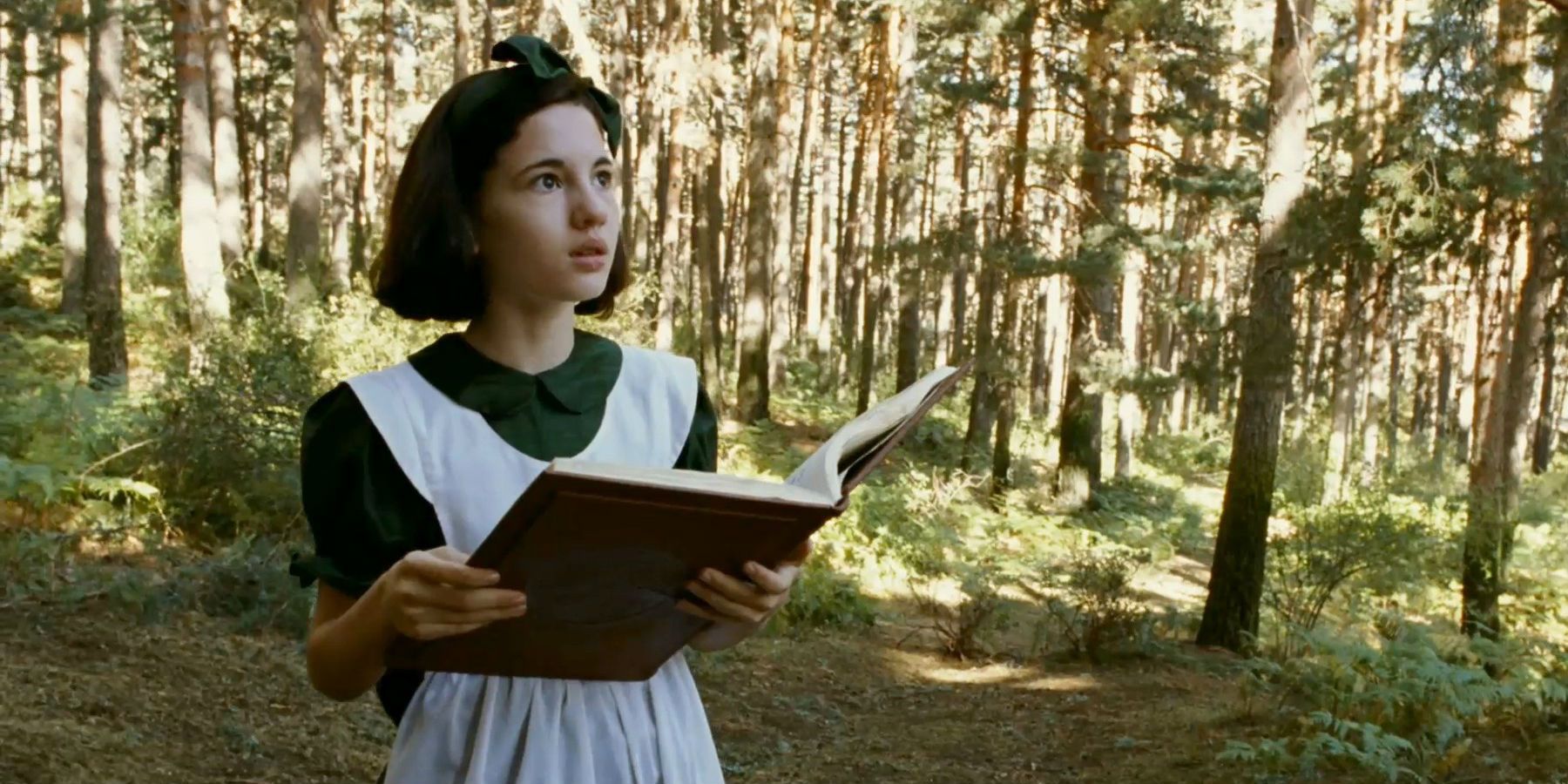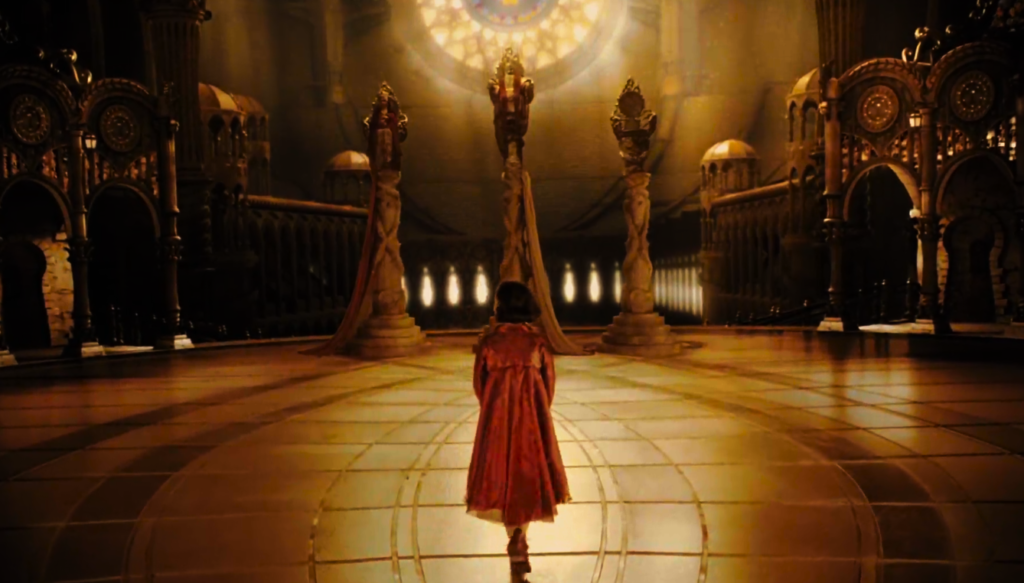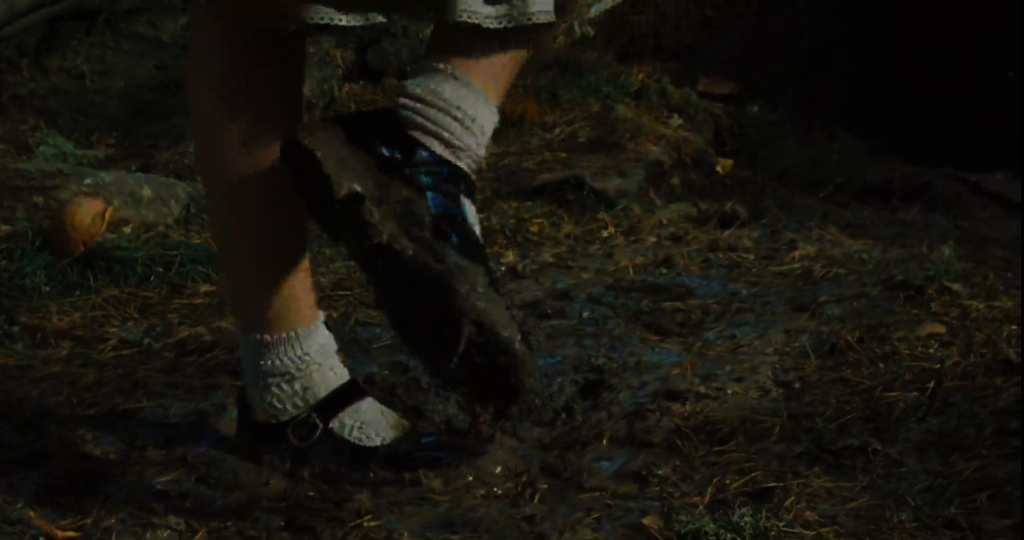Key Elements:
Sound –
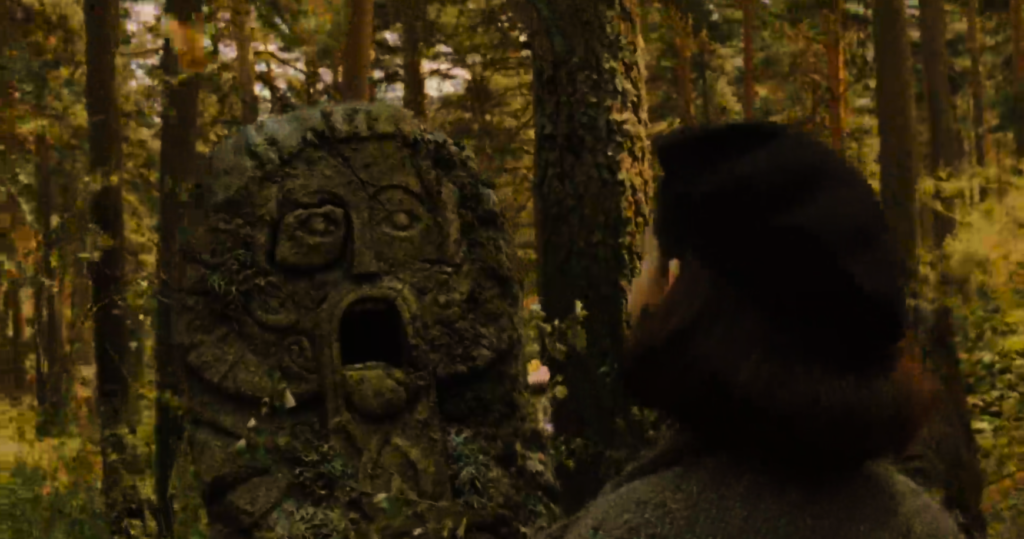
The use of narration at the start of the film is a key element in helping create a specific impact on the viewer as without the plot being established by the non-diegetic guidance the events of the film would be hard to find meaning for. Overall, without the use of narration, the applicable theory of Todorov, where a story having an equilibrium, wouldn’t make sense as the driving point for Ofelia’s actions wouldn’t have a deeper meaning on the audience. By the use of a narrator, it also adds to that story-telling theme that this film centres itself on with magic-realism such as large beasts, fairies and fauns.
Mise-en-scene –
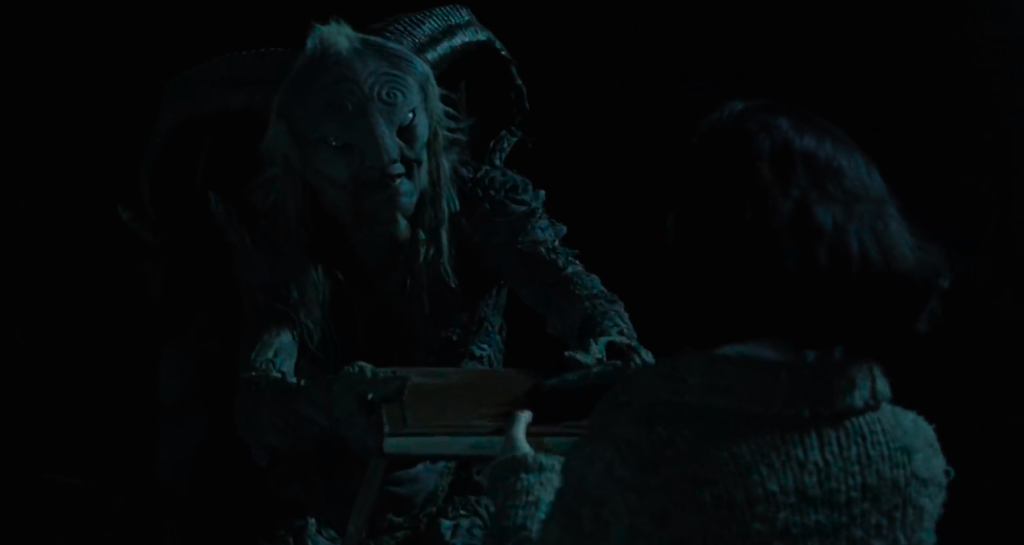
The use of props and costumes such as with the Fern and pale man, Book of crossroads and key to the dagger are a key part in what drives the narrative and makes an impactful impression on the audience. As McGuffins, they’re only purpose it to drive the narrative forwards, by having tasks performed these props are earned to further allow the narrative and plot to expand such as with retrieving the key from the frogs stomach being then used for the next task Ofelia must complete. This can be said to use Propps theory of spheres of action where types of characters such as Ofelia playing the hero, her mother, the princess, the faun the donor/dispatcher and captain Vadil as the villain. Costumes provide the fantastical element which impacts viewers due to its use of magic-realism.
Cinematography –
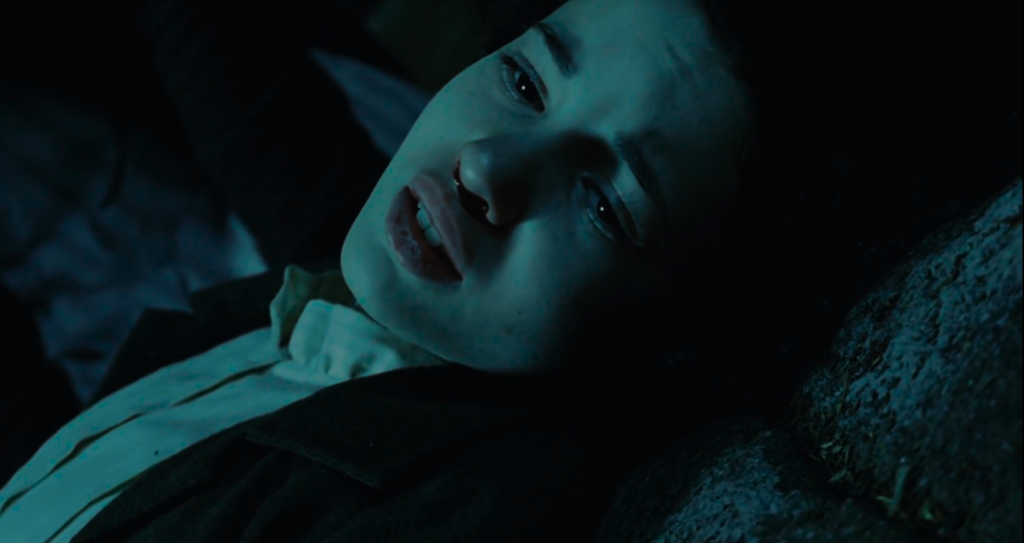
Through the use of a canted angle this creates a clearer picture into the fact she is laying on the ground. through this use of this angle it shows that we as a viewer are supposed to feel as if we are on the ground as well.
Editing –


Through the use of a Graphic match/wipe we as an audience can see how one scene changes to another. Overall this provides the information to audience of location and time changes between scenes (ellipsis) allowing us to assume she is really trying to search for the decaying tree containing the frog.
